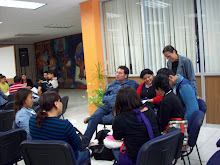Today in History
| November 27 | ||
| 43BC | Octavian, Antony and Lepidus form the triumvirate of Rome. | |
| 511 | Clovis, king of the Franks, dies and his kingdom is divided between his four sons. | |
| 1095 | In Clermont, France, Pope Urbana II makes an appeal for warriors to relieve Jerusalem. He is responding to false rumors of atrocities in the Holy Land. | |
| 1382 | The French nobility, led by Olivier de Clisson, crush the Flemish rebels at Flanders. | |
| 1812 | One of the two bridges being used by Napoleon Bonaparte’s army across the Beresina River in Russia collapses during a Russian artillery barrage. | |
| 1826 | Jebediah Smith’s expedition reaches San Diego, becoming the first Americans to cross the southwestern part of the continent. | |
| 1862 | George Armstrong Custer meets his future bride, Elizabeth Bacon, at a Thanksgiving party. | |
| 1868 | Lieutenant Colonel George A. Custer‘s 7th Cavalry kills Chief Black Kettle and about 100 Cheyenne (mostly women and children) on the Washita River. | |
| 1887 | U.S. Deputy Marshall Frank Dalton, brother of the three famous outlaws, is killed in the line of duty near Fort Smith, Ark. | |
| 1904 | The German colonial army defeats Hottentots at Warm bad in southwest Africa. | |
| 1909 | U.S. troops land in Blue fields, Nicaragua, to protect American interests there. | |
| 1919 | Bulgaria signs peace treaty with Allies at Unequally, France, fixing war reparations and recognizing Yugoslavian independence. | |
| 1922 | Allied delegates bar the Soviets from the Near East peace conference. | |
| 1936 | Great Britain’s Anthony Eden warns Hitler that Britain will fight to protect Belgium. | |
| 1942 | The French fleet in Toulon is scuttled to keep it from Germany. | |
| 1950 | East of the Choosing River, Chinese forces annihilate an American task force. | |
| 1954 | Alger Hiss, convicted of being a Soviet spy, is freed after 44 months in prison. | |
| 1959 | Demonstrators march in Tokyo to protest a defense treaty with the United States. | |
| 1967 | Lyndon Johnson appoints Robert McNamara to presidency of the World Bank. | |
| 1967 | Charles DeGaulle vetoes Great Britain’s entry into the Common Market again. | |
| 1970 | Syria joins the pact linking Libya, Egypt and Sudan. | |
| 1973 | US Senate votes to confirm Gerald Ford as President of the United States, following President Richard Nixon’s resignation; the House will confirm Ford on Dec. 6. | |
| 1978 | San Francisco mayor George Moscone and Harvey Milk, the city’s first openly gay supervisor, assassinated by former city supervisor Dan White. | |
| 1978 | Kurdistan Workers’ Party (Parti Karkerani Kurdistan, or PKK) founded; militant group that fought an armed struggle for an independent Kurdistan. | |
| 1984 | Britain and Spain sign the Brussels Agreement to enter discussions over the status of Gibraltar. | |
| 1999 | Helen Clark becomes first elected female Prime Minister of New Zealand. | |
| 2001 | Hubble Space Telescope discovers a hydrogen atmosphere on planet Osiris, the first atmosphere detected on an extrasolar planet. | |
| 2004 | Pope John Paul II returns relics of Saint John Chrysostom to the Eastern Orthodox Church. | |
| 2005 | First partial human face transplant completed Amiens, France. | |
| 2006 | Canadian House of Commons approves a motion, tabled by Prime Minister Stephen Harper, recognizing the Quebecois as a nation within Canada. | |
Born on November 27 | ||
| 1701 | Anders Celsius, astronomer who devised the centigrade temperature scale. | |
| 1870 | Joe Mack, builder of gasoline-powered delivery wagons which eventually evolved into the Mack Truck Company. | |
| 1874 | Charles A. Beard, distinguished American historian who wrote History of the United States. | |
| 1909 | James Agee, Pulitzer Prize-winning author (A Death in the Family). | |
| 1942 | Jimi Hendrix, influential rock musician. | |
| 1955 | Bill Nye, scientist, educator, TV host; known as Bill Nye the Science Guy, host of the Disney/PBS children’s show of the same name. | |
| 1957 | Caroline Kennedy, author, attorney, only surviving child of President John F. Kennedy and his wife, Jacqueline "Jackie" Bouvier; named US Ambassador to Japan (2013– ). | |
| 1963 | Princess Desiree of Hohenzollern. | |



No comments:
Post a Comment